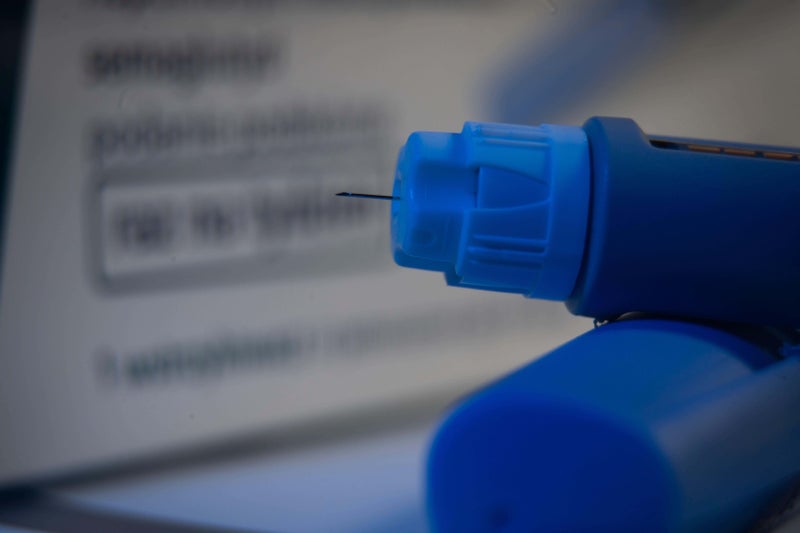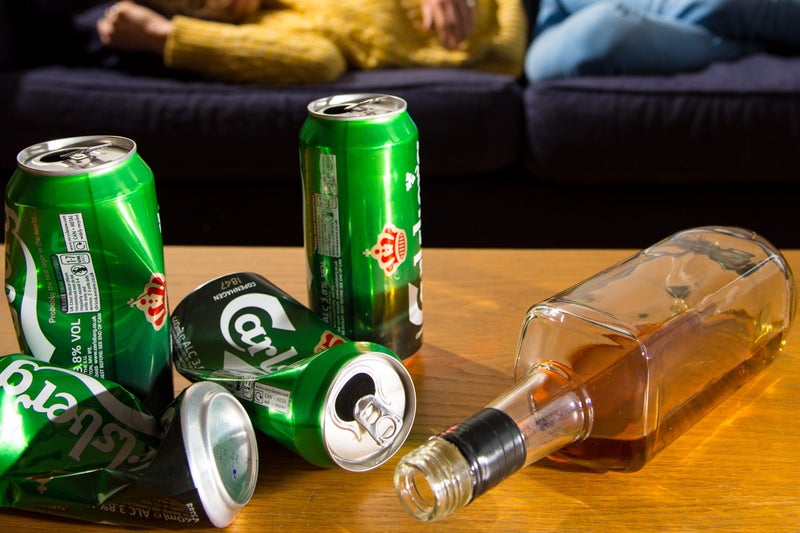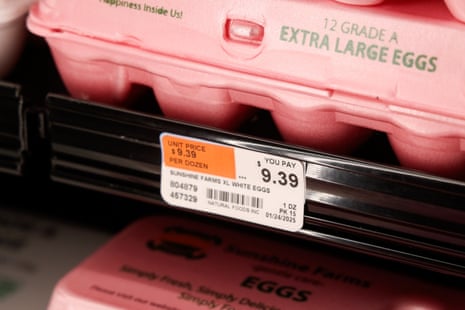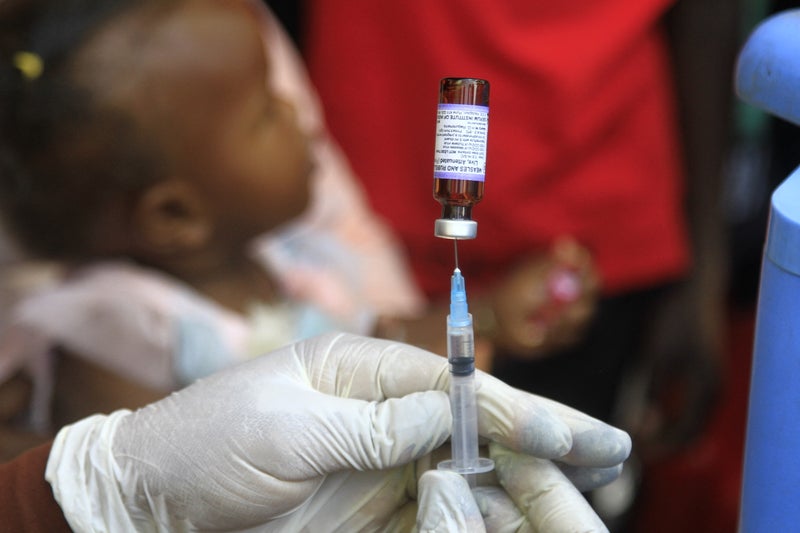They are beloved by A-listers and surging in popularity. But claims that NAD+ infusions are a fix for addiction are unproven, risky – and possibly illegal, an Observer investigation reveals. It is billed as a “miracle” treatment that can reverse ageing and regenerate brain cells. And getting hooked up to IV drips containing NAD+ has surged in popularity, with record Google searches and celebrity fans such as Kendall Jenner and Joe Rogan.
![[Joe Rogan, with a shaved head and in a tight long-sleeved shirt, smiles slightly as he speaks]](https://i.guim.co.uk/img/media/dc9bd002da04f6ae972c45cfd1ab65d286fa12e2/0_284_8268_4961/master/8268.jpg?width=445&dpr=1&s=none&crop=none)
Now NAD+ is being touted in the UK as a treatment for substance misuse. Infusions of NAD+, which is derived from vitamin B3, are being sold across the country as a “clinically proven” and “effective” way to quit drinking or get off drugs. With drug deaths at a high and pressure on publicly funded treatment, it’s an appealing option. But there’s a problem, says Dr Michael Sagner, a King’s College clinical adviser and expert in NAD+. “It’s complete nonsense,” he says. “People going through withdrawals are often in physical pain. The last thing they need is NAD+.”.
![[The clinic’s alcohol detox programme]](https://i.guim.co.uk/img/media/a5a48a1a6a59238ff242939384ef3d42cc5d3e85/0_0_2658_1448/master/2658.jpg?width=445&dpr=1&s=none&crop=none)
The Observer has found that unlicensed infusions containing NAD+ are being pushed as a treatment for substance use disorders in a likely breach of advertising and medicines rules, and despite a lack of proof that they work. The Medicines and Healthcare products Regulatory Agency (MHRA) said it had taken action against seven clinics offering NAD+ for medicinal purposes, requiring them to remove treatment claims.
![[NADclinic describes the detoxes it offers as being ‘virtually painless’.]](https://i.guim.co.uk/img/media/bf5783a73946b220b7027ae2d8b9869944d5bec2/0_98_2836_1543/master/2836.jpg?width=445&dpr=1&s=none&crop=none)
The infusions – which some companies state can reduce withdrawal symptoms and “repair” damaged cells by boosting levels of NAD+ (the active form of nicotinamide adenine dinucleotide) – cost from £370 for a “basic protocol” to £2,800 for a five-session “recovery detox”. They are being sold by doctor-owned clinics regulated by the Care Quality Commission (CQC), as well as by wellness companies and beauticians.
![[NAD Contral Clinics]](https://i.guim.co.uk/img/media/558e5a9c743854723b4a564a81cb0fbb32dbbb66/0_0_3130_1974/master/3130.jpg?width=445&dpr=1&s=none&crop=none)
Prof Harry Sumnall, an expert in substance use at Liverpool John Moores University, said: “It’s untested and unproven. We don’t know anything about its efficacy or long-term safety. There’s very little evidence supporting this approach.”. In one case, a businessman who is director of three CQC-regulated clinics advised a reporter posing as the sister of a man needing treatment for alcoholism to pay £5,000 for a programme involving ketamine infusions, which could also incorporate NAD+. “For an alcoholic there’s nothing like it … His life would completely change,” she was told.
![[Nadathome]](https://i.guim.co.uk/img/media/83de23d4a62810e58f5fec2688d198399a127bfd/0_0_1054_1094/master/1054.jpg?width=445&dpr=1&s=none&crop=none)
Another company claims to have sold its NAD+ infusions to “hundreds” of patients struggling with substance misuse. A third promises results in five days, claiming its “groundbreaking NAD+ detox is perfect for the prevention, alleviation, and removal of the acute and chronic symptoms associated with alcohol and drug misuse”.
![[A woman with long hair holds a whiskey glass as she drinks at a bar counter]](https://i.guim.co.uk/img/media/20399c7c209f70f7a7a56bb5ea166d446b52239f/15_0_6136_3683/master/6136.jpg?width=445&dpr=1&s=none&crop=none)
The cases cast light on a loosely regulated private addiction industry. NAD+ is not approved for use on the NHS, nor has it been licensed by the MHRA for medical purposes, meaning it cannot be advertised for the treatment of any disease. Sagner said he was particularly concerned that NAD+ was being offered by doctors. “I’m concerned that people with medical degrees now just want to use it as an opportunity to make money. It’s not ethical and it’s not medical,” he said.
Hailed as a “miracle molecule”, NAD+, or nicotinamide adenine dinucleotide, is a coenzyme derived from vitamin B3. It is found in all cells and plays a key role in repairing DNA and producing energy. Research shows NAD+ levels reduce over time and their depletion is thought to be linked to degenerative disorders and ageing. Studies suggest addiction – as well as stress, bad nutrition and smoking – can also affect NAD+ levels. According to advocates, boosting its levels can reverse damage and lead to a range of health benefits.
This hypothesis has driven a boom in people paying for NAD+ infusions. Stars including Hailey Bieber and Jennifer Aniston have reportedly used NAD+, while US podcaster Joe Rogan promoted it to his listeners. In an episode of the Joe Rogan Experience last May, he described NAD+ infusions as an “intense feeling” that is “very uncomfortable for your stomach” and “makes you cramp up”, but said there were “a lot of benefits”. “There’s a benefit for your immune system. There’s a benefit cognitively. You feel much better,” Rogan said.
Experts in NAD+ question the health claims and say the reported benefits are more likely to be a placebo effect. Sagner, director of the European Society of Preventive Medicine and an unpaid adviser to supplement company Elysium Health, says it makes sense that boosting NAD+ levels might be beneficial, but that despite years of research, there is insufficient evidence to make conclusive claims. “The data are not 100% convincing. It’s 50/50,” he says.
The science on its use in addiction treatment is even less clear. While clinics promote anecdotal success stories, and some animal studies have suggested a role in NAD+ in craving and drug reward systems, it is far from being proven as a treatment for humans, says Sumnall.































